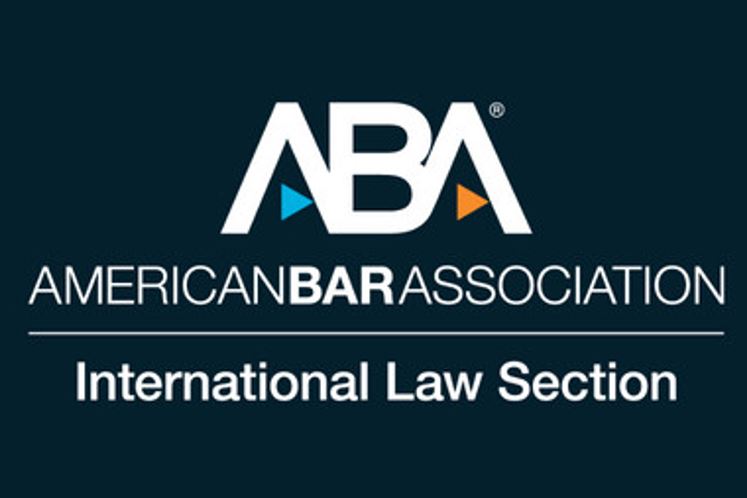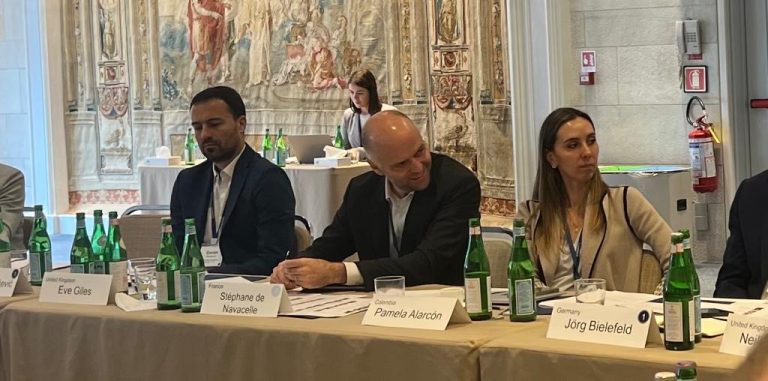I. Can allegations of corruption serve as a bar to jurisdiction of arbitral tribunals or admissibility of claims?
Jurisdiction of an arbitral tribunal is a creature of an arbitration clause in a contract, which is an independent and separate agreement. It does not get canceled on a future event due to the principle of separability of arbitration agreement as per Section 12 of the Arbitration Act, Cap 15 R.E. 2020 (the Arbitration Act). The validity, enforceability and applicability of the arbitration clause / agreement does not depend on other factors. The only vitiating factor to the jurisdiction of an arbitration tribunal is an invalid agreement to arbitration. When the agreement to arbitration is not valid then this will invalidate the jurisdiction granted to the arbitral tribunal as per Section 14 of the Arbitration Act.
There are no provisions in the Arbitration Act restricting a party’s ability to exclude the jurisdiction of the Tanzanian courts, in this regard the parties enjoy the freedom of contract to agree where the arbitration shall be held and what procedural laws to follow. Where the seat of arbitration is Tanzania, the courts will maintain supervisory jurisdiction.
The existence of corruption allegations does not render an arbitration clause / agreement inapplicable to the extent of acting as a bar to the jurisdiction because of the autonomous nature of arbitration. The autonomous nature of arbitration agreements ensures that arbitration proceedings are independent of courts as well as holding the agreement parties accountable.
Under Section 34 of the Arbitration Act, the Tribunal can rule on its own substantive jurisdiction, this is mainly on the validity of arbitration agreement, constitution of the Arbitral Tribunal and what matters to be submitted for arbitration as agreed by the parties.
Corruption allegation that can vitiate the jurisdiction of a Tribunal and the validity of arbitral award are those that have been proved before the competent corruption court. Mere corruption allegations that have not been proved yet cannot stand as bar to the jurisdiction of a tribunal.
II. Can allegations of corruption affect the validity of an arbitral award?
In Tanzania the enforcement of an arbitral award can be refused if the same has been endorsed, affected or influenced by corruption. The Arbitration Act provides bribery, corruption and fraud as one among the factors for challenging the enforcement and validity of an arbitral award in terms of sections 75(2)(g) and 83(2)(a) of the Arbitration Act. However, the allegation must have been proved by a competent corruption court in line with the presumption of innocence, mere allegations which have not been proved cannot have effect of invalidating the arbitral award.
Tanzania enforces and recognizes principles of international standards in arbitration, which recognizes that corruption can undermine the intention of conducting arbitral proceedings. Once there is sufficient proof of corruption / fraud in procuring the award then the court can set aside the award in whole or in part or declare the award to be of no effect, in whole or in part in terms of Section 75 (3) of the Arbitration Act.
Whilst there is no appropriate procedure to be followed in occasions where proof of corruption has to be obtained in another court, it has been the court’s practice to stay the enforcement proceeding to allow any subsequent proceeding that may affect recognition and enforcement of an arbitral award. In the of case of North Mara Gold Mine Limited v Diamond Motors Limited, Civil Appeal No. 29 of 2017, Court of Appeal of Tanzania, at Dar es Salaam (Unreported), the Court of Appeal determined that the High Court had committed an error in dismissing a petition to stay winding-up proceedings which aimed at facilitating the resolution of the underlying dispute through arbitration.
However, the court might take a different direction if it is of the opinion that the criminal proceeding is not materially related to the enforcement proceeding. This includes instances where the issues are materially not related and parties to the suits are different.
III. In annulment or enforcement proceedings, can the court review the award and the merits to determine whether corruption or related offences affect the underlying dispute?
In Tanzania the Court has jurisdiction to enforce an arbitral award and hear an application challenging the award when it is affected by a serious irregularity. Here the court has the power to remit the matter back to the arbitral tribunal, set aside or declare the award to be of no effect. The court cannot determine the merit of the award and arbitral proceedings on other underlying offences.
In practice the court’s power to review an award and merit is subject to an application to challenge its validity and enforcement. Whereas upon application for enforcement of the arbitral award the Court has power to refuse enforcing the arbitral award if it finds that the making of the arbitral award was induced or affected by fraud, bribery, corruption or undue influence as per section 83(2) of the Arbitration Act. However, in determining corruption related issues, it will depend whether the corruption court which has convicted a person. If so, the annulment can have effect. Mere allegations cannot be a ground for reviewing the arbitral award as allegations are not true until the same is proved against the person under allegation.
IV. Can courts review corruption allegations which have not been raised in the arbitration?
Yes, technically Tanzanian court can review corruption allegations which were not raised in the arbitration. A party can challenge the enforcement of the arbitral award on the ground of serious irregularity which includes fraud and corruption. As such, pursuant to section 75 and 83 of the Arbitration Act, the Tanzanian courts can review the corruption allegation during the enforcement proceedings.
However, the review is subject to final determination of the corruption allegation by the corruption court and having convicted a person other than which review will not be possible for lack of actual evidence of corruption based on the presumption of innocence.
V. Do courts defer to the arbitral tribunal’s finding that no corruption acts were committed?
When there is an allegation of corruption concerning the issuance of the arbitral award, the court can review corruption allegations including those that are not raised in the arbitration, the court has the power to review allegations not raised in arbitration provided the same is essential towards reaching the substantive justice between the parties. In doing so the court can evaluate the evidence provided and make its determination on the allegations.
VI. Is there a standard of proof used by arbitrators and reviewing courts to assess the existence of corruption?
In Tanzania, corruption is a criminal offence and therefore the standard of proof before the national courts for such criminal offences is that of beyond any reasonable doubt as per section 3(2)(a) of the Evidence Act.
On the other hand, for arbitration matters, the standard of proof for corruption allegations is not merely on a balance of probabilities. Although, the standard of proof required will not be that of beyond reasonable doubt; instead, the tribunal will require such matters to be reasonably proven on a standard higher than a balance of probabilities. This has been the position of the court in instances where claims are brought against an arbitrator, the complainant needs to show that, his position on that issue was “reasonably arguable” in proving his claims against the arbitrator. This was the decision in Cereals and other Produce of Board of Tanzania vs Monaban Trading Farming Company Limited (Misc Commercial Cause 9 of 2022) High Court (Commercial Division) TZHCComD 266 [2 September 2022].
Therefore, the standard of proof applicable by courts and Arbitral Tribunals is that of beyond reasonable doubt. This is in line with the fact that mere allegations should not hold one liable for corruption since everyone is presumed innocent until proved guilty.
VII. Which method do arbitrators and reviewing courts employ to establish evidence of corruption?
In establishing evidence of corruption there has to be proof to the effect that a person “(a) solicits, accepts or obtains, or attempts to obtain, from any person for himself or any other person, any advantage as an inducement to, or reward for, or otherwise on account of, any agent, whether or not such agent is the same person as such first mentioned person and whether the agent has or has no authority to do, or for bearing to do, or having done or forborne to do, anything in relation to his principal’s affairs or business, or (b) gives, promises or offers any advantage to any person, whether for the benefit of that person or of another person, as an inducement to, or reward for, or otherwise on account of, any agent whether or not such agent is the person to whom such advantage is given, promised or offered and whether the agent has or has no authority to do, doing, or forbearing to do, or having done or forborne to do, anything in relation to his principal’s affairs or business” as outlined under section 15(1) of the Prevention and Combating of Corruption Act. There is no specific method to establish evidence of corruption in Tanzania, but rather there should be proof beyond reasonable doubt that there is corruption.
VIII. Are arbitrators seated in your jurisdiction bound by criminal proceedings on issues that could impact the underlying arbitration dispute?
Yes, the arbitrators are rarely bound by the criminal proceedings that could impact the underlying of, or connected to, the arbitration provided that the proceeding are undertaken by the competent corruption court to conviction and in case the award is not issued already the arbitral processes can be deferred pending determination of the criminal proceedings which impede the decision of the Arbitrator.
IX. To what extent do they rely on or defer to findings from parallel criminal investigations?
Corruption offences are undertaken by special corruption courts, arbitral tribunals reliance on the findings of the corruption court is great as it is a serious factor in determination of validity of an award issued. This goes to the extent that when there are proceedings going on the corruption allegations initiated can defer the proceedings of the arbitral tribunal leading to the change of position depending on the outcome of the alleged corruption.
X. Are remedies available when an arbitral tribunal rules that there is no evidence of corruption but subsequently a criminal ruling decides otherwise?
Yes, parties to the award can challenge the award if there is a criminal ruling stating otherwise, and that is the reason for an arbitral tribunal to hold proceedings pending the finalization of a criminal case or investigation.



